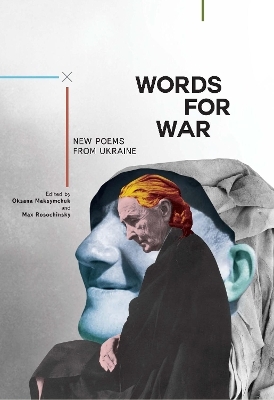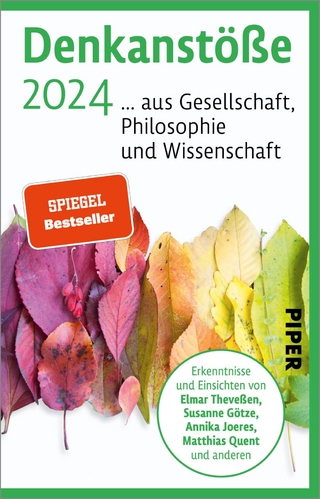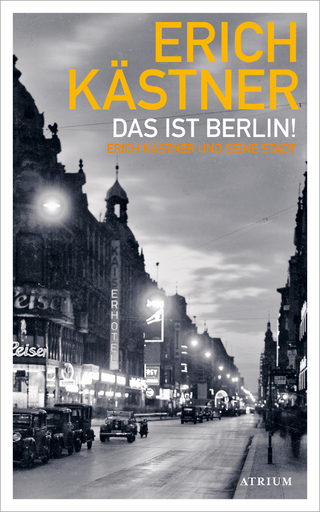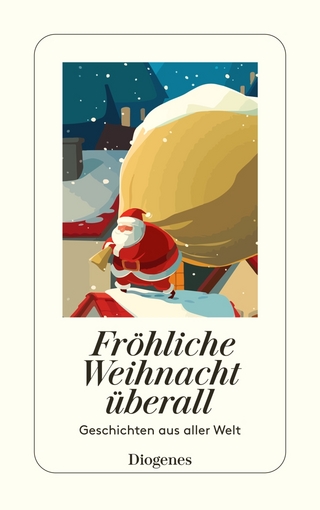
Words for War
Academic Studies Press (Verlag)
978-1-61811-666-6 (ISBN)
- Titel z.Zt. nicht lieferbar
- Versandkostenfrei innerhalb Deutschlands
- Auch auf Rechnung
- Verfügbarkeit in der Filiale vor Ort prüfen
- Artikel merken
The armed conflict in the east of Ukraine brought about an emergence of a distinctive trend in contemporary Ukrainian poetry: the poetry of war. Directly and indirectly, the poems collected in this volume engage with the events and experiences of war, reflecting on the themes of alienation, loss, dislocation, and disability; as well as justice, heroism, courage, resilience, generosity, and forgiveness. In addressing these themes, the poems also raise questions about art, politics, citizenship, and moral responsibility. The anthology brings together some of the most compelling poetic voices from different regions of Ukraine. Young and old, female and male, somber and ironic, tragic and playful, filled with extraordinary terror and ordinary human delights, the voices recreate the human sounds of war in its tragic complexity.
Oksana Maksymchuk is an author of two award-winning books of poetry in the Ukrainian language, and a recipient of Richmond Lattimore and Joseph Brodsky-Stephen Spender translation prizes. She works on problems of cognition and motivation in Plato’s moral psychology. Maksymchuk teaches philosophy at the University of Arkansas. Max Rosochinsky is a poet and translator from Simferopol, Crimea. His poems had been nominated for the PEN International New Voices Award in 2015. With Maksymchuk, he won first place in the 2014 Brodsky-Spender competition. His academic work focuses on twentieth century Russian poetry, especially Osip Mandelshtam and Marina Tsvetaeva.
Preface Oksana Maksymchuk and Max Rosochinsky Introduction: “Barometers” Ilya Kaminsky ANASTASIA AFANASIEVA she says we don’t have the right kind of basement in our building You whose inner void from Cold She Speaks On TV the news showed from The Plain Sense of Things Untitled Can there be poetry after VASYL HOLOBORODKO No Return I Fly Away in the Shape of a Dandelion Seed The Dragon Hillforts I Pick up my Footprints BORYS HUMENYUK Our platoon commander is a strange fellow These seagulls over the battlefield When HAIL rocket launchers are firing Not a poem in forty days An old mulberry tree near Mariupol When you clean your weapon A Testament YURI IZDRYK Darkness Invisible Make Love ALEKSANDR KABANOV This is a post on Facebook, and this, a block post in the East How I love — out of harm’s way A Former Dictator He came first wearing a t-shirt inscribed “Je suis Christ” In the garden of Gethsemane on the Dnieper river A Russian tourist is on vacation Fear is a form of the good Once upon a time, a Jew says to his prisoner, his Hellenic foe KATERYNA KALYTKO They won’t compose any songs, because the children of their children April 6 This loneliness could have a name, an Esther or a Miriam Home is still possible there, where they hang laundry out to dry He Writes Can great things happen to ordinary people? LYUDMYLA KHERSONSKA Did you know that if you hide under a blanket and pull it over your head How to describe a human other than he’s alone The whole soldier doesn’t suffer A country in the shape of a puddle, on the map Buried in a human neck, a bullet looks like a eye, sewn in that’s it: you yourself choose how you live I planted a camellia in the yard One night, a humanitarian convoy arrived in her dream When a country of — overall — nice people Leave me alone, I’m crying. I’m crying, let me be the enemy never ends every seventh child of ten — he’s a shame you really don’t remember Grandpa — but let’s say you do BORIS KHERSONSKY explosions are the new normal, you grow used to them all for the battlefront which doesn’t really exist people carry explosives around the city way too long the artillery and the tanks stayed silent in their hangars when wars are over we just collapse modern warfare is too large for the streets my brother brought war to our crippled home Bessarabia, Galicia, 1913–1939 Pronouncements MARIANNA KIYANOVSKA I believed before in a tent like in a nest we swallowed an air like earth I wake up, sigh, and head off to war The eye, a bulb that maps its own bed Their tissue is coarse, like veins in a petal Things swell closed. It’s delicious to feel how fully Naked agony begets a poison of poisons HALYNA KRUK A Woman Named Hope like a blood clot, something catches him in the rye someone stands between you and death like a bullet, the Lord saves those who save themselves OKSANA LUTSYSHYNA eastern europe is a pit of death and decaying plums don’t touch live flesh he asks — don’t help me I Dream of Explosions VASYL MAKHNO February Elegy War Generation On War On Apollinaire MARJANA SAVKA We wrote poems Forgive me, darling, I’m not a fighter january pulled him apart OSTAP SLYVYNSKY Lovers on a Bicycle Lieutenant Alina 1918 Kicking the Ball in the Dark Story (2) Latifa A Scene from 2014 Orpheus LYUBA YAKIMCHUK Died of Old Age How I Killed Caterpillar Decomposition He Says Everything Will Be Fine Eyebrows Funeral Services Crow, Wheels Knife SERHIY ZHADAN from Stones “We speak of the cities we lived in . . .” “Now we remember: janitors and the night-sellers of bread . . .” from Why I’m not on Social Media Needle Headphones Sect Rhinoceros They buried him last winter Three Years Now We’ve Been Talking about the War “A guy I know volunteered . . .” “Three years now we’ve been talking about the war . . .” “So that’s what their family is like now . . .” “Sun, terrace, lots of green . . .” “The street. A woman zigzags the street . . .” “Village street – gas line’s broken . . .” “At least now, my friend says . . .” Thirty-Two Days Without Alcohol Take Only What Is Most Important A city where she ended up hiding Afterword: “On Decomposition and Rotten Plums: Language of War in Contemporary Ukrainian Poetry” Polina Barskova Authors Translators Glossary Geographical Locations and Places of Significance Notes to Poems Acknowledgements Acknowledgement of Prior Publications
| Erscheinungsdatum | 06.02.2018 |
|---|---|
| Reihe/Serie | Ukrainian Studies |
| Zusatzinfo | Illustrations, unspecified |
| Verlagsort | Brighton |
| Sprache | englisch |
| Maße | 159 x 228 mm |
| Themenwelt | Literatur ► Anthologien |
| ISBN-10 | 1-61811-666-5 / 1618116665 |
| ISBN-13 | 978-1-61811-666-6 / 9781618116666 |
| Zustand | Neuware |
| Haben Sie eine Frage zum Produkt? |
aus dem Bereich


